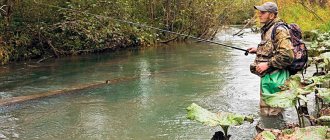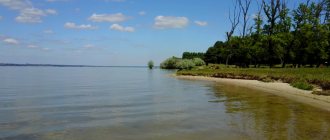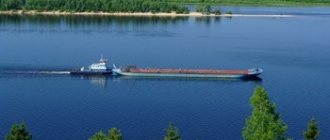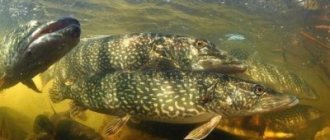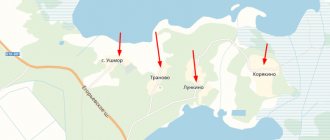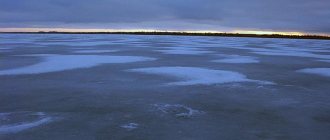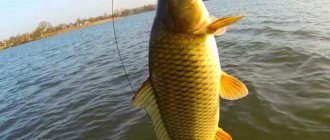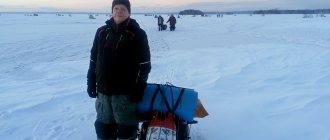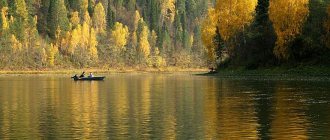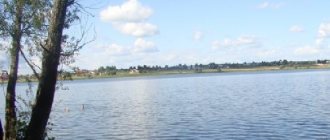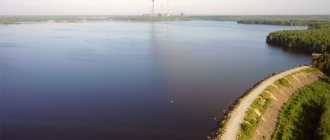deutschenglishespañolfrançaisहिन्दी
Bite forecast > Russia > Sverdlovsk region > Nizhneturinsky urban district > Burbot
Find out how the fish will bite in the Burbot River in the coming days. The bite forecast takes into account the weather, moon phase, water temperature, and seasonal fish activity.
River Nalim on the map:
Expand the map
to zoom with the mouse wheel
Move this checkbox
| February 16 Tuesday | February 17 Wednesday | February 18 Thursday | February 19 Friday | February 20 Saturday | ||||||||||||||||
| time | night 02:00 | morning 08:00 | day 14:00 | evening 20:00 | night 02:00 | morning 08:00 | day 14:00 | evening 20:00 | night 02:00 | morning 08:00 | day 14:00 | evening 20:00 | night 02:00 | morning 08:00 | day 14:00 | evening 20:00 | night 02:00 | morning 08:00 | day 14:00 | evening 20:00 |
| Weather show weather hide weather | Haze | Haze | Mainly cloudy | Mainly cloudy | Mainly cloudy | Mainly cloudy | Mainly cloudy | Partly cloudy | Partly cloudy | Partly cloudy | Mainly cloudy | light snowfall | Supercooled fog | Supercooled fog | Mainly cloudy | Supercooled fog | Haze | Mainly cloudy | Cloudy | light snowfall |
| air temperature, °C °F feels like, °C °F | −21 -6° | −24 -11° | −20 -4° | −22 -8° | −25 -13° | −24 -11° | −20 -4° | −20 -4° | −24 -11° | −25 -13° | −20 -4° | −21 -6° | −28 -18° | −31 -24° | −24 -11° | −24 -11° | −28 -18° | −27 -17° | −19 -2° | −19 -2° |
| −27 -17° | −31 -24° | −28 -18° | −31 -24° | −34 -29° | −32 -26° | −28 -18° | −27 -17° | −30 -22° | −30 -22° | −24 -11° | −24 -11° | −33 -27° | −27 -17° | −29 -20° | −31 -24° | −21 -6° | ||||
| water temperature, °C °F surface / depth | 1 34° / 2 36° | 1 34° / 2 36° | 1 34° / 2 36° | 1 34° / 2 36° | 1 34° / 2 36° | 1 34° / 2 36° | 1 34° / 2 36° | 1 34° / 2 36° | 1 34° / 2 36° | 1 34° / 2 36° | 1 34° / 2 36° | 1 34° / 2 36° | 1 34° / 2 36° | 1 34° / 2 36° | 1 34° / 2 36° | 1 34° / 2 36° | 1 34° / 2 36° | 1 34° / 2 36° | 1 34° / 2 36° | 1 34° / 2 36° |
| cloudiness, % | 72 | 57 | 100 | 100 | 93 | 100 | 100 | 82 | 32 | 20 | 71 | 100 | 100 | 100 | 100 | 100 | 94 | 93 | 53 | 100 |
| precipitation, mmin/6 h | 0 0 | 0 0 | 0 0 | 0 0 | 0 0 | 0 0 | 0 0 | 0 0 | 0 0 | 0 0 | 0 0 | 0 0 | 0 0 | 0 0 | 0 0 | 0 0 | 0 0 | 0 0 | 0 0 | 0 0 |
| wind | W-S-W west-southwest | W-S-W west-southwest | W-S-W west-southwest | W western | W western | W western | W western | W-S-W west-southwest | W western | W western | NE northeast | NE northeast | SE southeast | NNW north-northwest | W western | SE southeast | SW southwest | W-S-W west-southwest | SSW south-southwest | E-N-E east-northeast |
| wind speed, m/s km/h mph / wind gusts, m/s km/h mph | 2 / 5 7 / 18 4 / 11 wind speed 2 m/s km/h mph, gusts up to 5 m/s km/h mph wind speed 7 m/s km/h mph, gusts up to 18 m/s km/h mph wind speed 4 m/s km/h mph, gusts up to 11 m/s km/h mph Slight water disturbance. | 2 / 4 7 / 14 4 / 9 wind speed 2 m/s km/h mph, gusts up to 4 m/s km/h mph wind speed 7 m/s km/h mph, gusts up to 14 m/s km/h mph wind speed 4 m/s km/h mph, gusts up to 9 m/s km/h mph Slight water disturbance. | 4 / 5 14 / 18 9 / 11 wind speed 4 m/s km/h mph, gusts up to 5 m/s km/h mph wind speed 14 m/s km/h mph, gusts up to 18 m/s km/h mph wind speed 9 m/s km/h mph, gusts up to 11 m/s km/h mph The waters are moderately rough. | 4 / 6 14 / 22 9 / 13 wind speed 4 m/s km/h mph, gusts up to 6 m/s km/h mph wind speed 14 m/s km/h mph, gusts up to 22 m/s km/h mph wind speed 9 m/s km/h mph, gusts up to 13 m/s km/h mph The waters are moderately rough. | 3 / 6 11 / 22 7 / 13 wind speed 3 m/s km/h mph, gusts up to 6 m/s km/h mph wind speed 11 m/s km/h mph, gusts up to 22 m/s km/h mph wind speed 7 m/s km/h mph, gusts up to 13 m/s km/h mph Slight water disturbance. | 3 / 5 11 / 18 7 / 11 wind speed 3 m/s km/h mph, gusts up to 5 m/s km/h mph wind speed 11 m/s km/h mph, gusts up to 18 m/s km/h mph wind speed 7 m/s km/h mph, gusts up to 11 m/s km/h mph Slight water disturbance. | 3 / 4 11 / 14 7 / 9 wind speed 3 m/s km/h mph, gusts up to 4 m/s km/h mph wind speed 11 m/s km/h mph, gusts up to 14 m/s km/h mph wind speed 7 m/s km/h mph, gusts up to 9 m/s km/h mph Slight water disturbance. | 3 / 4 11 / 14 7 / 9 wind speed 3 m/s km/h mph, gusts up to 4 m/s km/h mph wind speed 11 m/s km/h mph, gusts up to 14 m/s km/h mph wind speed 7 m/s km/h mph, gusts up to 9 m/s km/h mph Slight water disturbance. | 2 / 4 7 / 14 4 / 9 wind speed 2 m/s km/h mph, gusts up to 4 m/s km/h mph wind speed 7 m/s km/h mph, gusts up to 14 m/s km/h mph wind speed 4 m/s km/h mph, gusts up to 9 m/s km/h mph Slight water disturbance. | 2 / 3 7 / 11 4 / 7 wind speed 2 m/s km/h mph, gusts up to 3 m/s km/h mph wind speed 7 m/s km/h mph, gusts up to 11 m/s km/h mph wind speed 4 m/s km/h mph, gusts up to 7 m/s km/h mph Slight water disturbance. | 1 / 2 4 / 7 2 / 4 wind speed 1 m/s km/h mph, gusts up to 2 m/s km/h mph wind speed 4 m/s km/h mph, gusts up to 7 m/s km/h mph wind speed 2 m/s km/h mph, gusts up to 4 m/s km/h mph Water bodies are calm. | 2 / 3 7 / 11 4 / 7 wind speed 2 m/s km/h mph, gusts up to 3 m/s km/h mph wind speed 7 m/s km/h mph, gusts up to 11 m/s km/h mph wind speed 4 m/s km/h mph, gusts up to 7 m/s km/h mph Slight water disturbance. | 1 / 3 4 / 11 2 / 7 wind speed 1 m/s km/h mph, gusts up to 3 m/s km/h mph wind speed 4 m/s km/h mph, gusts up to 11 m/s km/h mph wind speed 2 m/s km/h mph, gusts up to 7 m/s km/h mph Water bodies are calm. | 1 4 2 wind speed 1 m/s km/h mph wind speed 4 m/s km/h mph wind speed 2 m/s km/h mph Water bodies are calm. | 1 4 2 wind speed 1 m/s km/h mph wind speed 4 m/s km/h mph wind speed 2 m/s km/h mph Water bodies are calm. | 1 / 2 4 / 7 2 / 4 wind speed 1 m/s km/h mph, gusts up to 2 m/s km/h mph wind speed 4 m/s km/h mph, gusts up to 7 m/s km/h mph wind speed 2 m/s km/h mph, gusts up to 4 m/s km/h mph Water bodies are calm. | 1 / 2 4 / 7 2 / 4 wind speed 1 m/s km/h mph, gusts up to 2 m/s km/h mph wind speed 4 m/s km/h mph, gusts up to 7 m/s km/h mph wind speed 2 m/s km/h mph, gusts up to 4 m/s km/h mph Water bodies are calm. | 1 / 3 4 / 11 2 / 7 wind speed 1 m/s km/h mph, gusts up to 3 m/s km/h mph wind speed 4 m/s km/h mph, gusts up to 11 m/s km/h mph wind speed 2 m/s km/h mph, gusts up to 7 m/s km/h mph Water bodies are calm. | 1 4 2 wind speed 1 m/s km/h mph wind speed 4 m/s km/h mph wind speed 2 m/s km/h mph Water bodies are calm. | 1 / 2 4 / 7 2 / 4 wind speed 1 m/s km/h mph, gusts up to 2 m/s km/h mph wind speed 4 m/s km/h mph, gusts up to 7 m/s km/h mph wind speed 2 m/s km/h mph, gusts up to 4 m/s km/h mph Water bodies are calm. |
| pressure mm. Hg Art. inch Hg Art. hPa | 743 29.25 991 | 743 29.25 991 | 743 29.25 991 | 745 29.33 993 | 747 29.41 996 | 749 29.49 999 | 749 29.49 999 | 750 29.53 1000 | 751 29.57 1001 | 751 29.57 1001 | 749 29.49 999 | 748 29.45 997 | 748 29.45 997 | 748 29.45 997 | 748 29.45 997 | 747 29.41 996 | 749 29.49 999 | 749 29.49 999 | 749 29.49 999 | 749 29.49 999 |
| humidity, % | 95 | 95 | 83 | 85 | 91 | 88 | 84 | 90 | 93 | 93 | 87 | 96 | 100 | 99 | 87 | 94 | 98 | 93 | 80 | 93 |
| Moon phase | Young Moon age: 5 days illumination: 17% distance: 403 thousand km. | Young Moon age: 5 days illumination: 25% distance: 405 thousand km. | First quarter age: 6 days illumination: 33% distance: 405 thousand km. | First quarter age: 7 days illumination: 43% distance: 405 thousand km. | First quarter age: 8 days illumination: 52% distance: 404 thousand km. | |||||||||||||||
| moonrise—moonset | 10:11—23:36 | 10:17—03:00 | 10:25—00:53 | 10:35—02:11 | 10:49—03:30 | |||||||||||||||
| sunrise—sunset | 08:33—18:00 | 08:30—18:02 | 08:27—18:05 | 08:25—18:07 | 08:22—18:10 | |||||||||||||||
| length of day | 09:27 | 09:32 | 09:38 | 09:42 | 09:48 | |||||||||||||||
| hours of sunshine per day | 3.6 | 3.6 | 5.3 | 3.7 | 5.4 | |||||||||||||||
| UV index | 1 minor UV radiation | 2 minor UV radiation | 1 minor UV radiation | 1 minor UV radiation | 1 minor UV radiation | |||||||||||||||
| fish bite 0-100% | ||||||||||||||||||||
| White amur | 0 Grass carp are not biting Grass carp are found in deep places | 0 Grass carp are not biting Grass carp are found in deep places | 0 Grass carp are not biting Grass carp are found in deep places | 0 Grass carp are not biting Grass carp are found in deep places | 0 Grass carp are not biting Grass carp are found in deep places | 0 Grass carp are not biting Grass carp are found in deep places | 0 Grass carp are not biting Grass carp are found in deep places | 0 Grass carp are not biting Grass carp are found in deep places | 0 Grass carp are not biting Grass carp are found in deep places | 0 Grass carp are not biting Grass carp are found in deep places | 0 Grass carp are not biting Grass carp are found in deep places | 0 Grass carp are not biting Grass carp are found in deep places | 0 Grass carp are not biting Grass carp are found in deep places | 0 Grass carp are not biting Grass carp are found in deep places | 0 Grass carp are not biting Grass carp are found in deep places | 0 Grass carp are not biting Grass carp are found in deep places | 0 Grass carp are not biting Grass carp are found in deep places | 0 Grass carp are not biting Grass carp are found in deep places | 0 Grass carp are not biting Grass carp are found in deep places | 0 Grass carp are not biting Grass carp are found in deep places |
| Minnow | 12 No minnow bite Minnow is found in deep places | 27 There is almost no minnow bite. The minnow is found in deep places. | 24 There is almost no minnow bite The minnow is found in deep places | 19 No minnow bite Minnow is found in deep places | 11 No minnow bite Minnow is found in deep places | 27 There is almost no minnow bite. The minnow is found in deep places. | 27 There is almost no minnow bite. The minnow is found in deep places. | 30 There is almost no minnow bite. The minnow is found in deep places. | 17 No minnow bite Minnow is found in deep places | 33 Sluggish minnow bite The minnow is found in deep places | 39 Sluggish minnow bite The minnow is found in deep places | 39 Sluggish minnow bite The minnow is found in deep places | 21 There is almost no minnow bite. The minnow is found in deep places. | 42 Minnow bite is worse than average Minnow is found in deep places | 42 Minnow bite is worse than average Minnow is found in deep places | 35 Sluggish minnow bite The minnow is found in deep places | 18 No minnow bite Minnow is found in deep places | 35 Sluggish minnow bite The minnow is found in deep places | 35 Sluggish minnow bite The minnow is found in deep places | 35 Sluggish minnow bite The minnow is found in deep places |
| Gustera | 23 There is almost no bite for the silver bream. The silver bream is found in deep places | 30 There is almost no bite for the silver bream. The silver bream is found in deep places | 23 There is almost no bite for the silver bream. The silver bream is found in deep places | 26 There is almost no bite for the silver bream. The silver bream is found in deep places. | 21 There is almost no bite for the silver bream. The silver bream is found in deep places. | 30 There is almost no bite for the silver bream. The silver bream is found in deep places | 27 There is almost no bite for the silver bream. The silver bream is found in deep places | 42 The white bream bite is worse than average. The silver bream is found in deep places. | 32 The sluggish bite of the silver bream is in deep places | 37 The sluggish bite of the silver bream is in deep places | 39 The sluggish bite of the silver bream is in deep places | 46 The white bream bite is worse than average. The silver bream is found in deep places. | 34 The sluggish bite of the silver bream is in deep places | 39 The sluggish bite of the silver bream is in deep places | 34 The sluggish bite of the silver bream is in deep places | 49 The white bream bite is worse than average. The silver bream is found in deep places. | 35 The sluggish bite of the silver bream is in deep places | 39 The sluggish bite of the silver bream is in deep places | 35 The sluggish bite of the silver bream is in deep places | 49 The white bream bite is worse than average. The silver bream is found in deep places. |
| Dace | 20 There is no bite for dace. Dace is found in deep places. | 22 There is almost no bite for dace. Dace is found in deep places. | 20 There is no bite for dace. Dace is found in deep places. | 16 There is no bite for dace. Dace is found in deep places. | 18 There is no bite for dace. Dace is found in deep places. | 23 There is almost no bite for dace. Dace is found in deep places. | 23 There is almost no bite for dace. Dace is found in deep places. | 25 There is almost no bite for dace. Dace is found in deep places. | 28 There is almost no bite for dace. Dace is found in deep places. | 28 There is almost no bite for dace. Dace is found in deep places. | 33 Sluggish bite of dace Dace is found in deep places | 28 There is almost no bite for dace. Dace is found in deep places. | 29 There is almost no bite for dace. Dace is found in deep places. | 29 There is almost no bite for dace. Dace is found in deep places. | 29 There is almost no bite for dace. Dace is found in deep places. | 29 There is almost no bite for dace. Dace is found in deep places. | 30 There is almost no bite for dace. Dace is found in deep places. | 30 There is almost no bite for dace. Dace is found in deep places. | 30 There is almost no bite for dace. Dace is found in deep places. | 30 There is almost no bite for dace. Dace is found in deep places. |
| crucian carp | 0 There is no bite for crucian carp. Crucian carp is in deep places | 0 There is no bite for crucian carp. Crucian carp is in deep places | 0 There is no bite for crucian carp. Crucian carp is in deep places | 0 There is no bite for crucian carp. Crucian carp is in deep places | 0 There is no bite for crucian carp. Crucian carp is in deep places | 0 There is no bite for crucian carp. Crucian carp is in deep places | 0 There is no bite for crucian carp. Crucian carp is in deep places | 0 There is no bite for crucian carp. Crucian carp is in deep places | 0 There is no bite for crucian carp. Crucian carp is in deep places | 0 There is no bite for crucian carp. Crucian carp is in deep places | 0 There is no bite for crucian carp. Crucian carp is in deep places | 0 There is no bite for crucian carp. Crucian carp is in deep places | 0 There is no bite for crucian carp. Crucian carp is in deep places | 0 There is no bite for crucian carp. Crucian carp is in deep places | 0 There is no bite for crucian carp. Crucian carp is in deep places | 0 There is no bite for crucian carp. Crucian carp is in deep places | 0 There is no bite for crucian carp. Crucian carp is in deep places | 0 There is no bite for crucian carp. Crucian carp is in deep places | 0 There is no bite for crucian carp. Crucian carp is in deep places | 0 There is no bite for crucian carp. Crucian carp is in deep places |
| Carp | 0 No carp biting Carp are in deep places | 0 No carp biting Carp are in deep places | 0 No carp biting Carp are in deep places | 0 No carp biting Carp are in deep places | 0 No carp biting Carp are in deep places | 0 No carp biting Carp are in deep places | 0 No carp biting Carp are in deep places | 0 No carp biting Carp are in deep places | 0 No carp biting Carp are in deep places | 0 No carp biting Carp are in deep places | 0 No carp biting Carp are in deep places | 0 No carp biting Carp are in deep places | 0 No carp biting Carp are in deep places | 0 No carp biting Carp are in deep places | 0 No carp biting Carp are in deep places | 0 No carp biting Carp are in deep places | 0 No carp biting Carp are in deep places | 0 No carp biting Carp are in deep places | 0 No carp biting Carp are in deep places | 0 No carp biting Carp are in deep places |
| Bream | 30 There is almost no bream bite Bream is found in deep places | 33 Sluggish bream bite Bream is found in deep places | 30 There is almost no bream bite Bream is found in deep places | 23 There is almost no bream bite Bream is found in deep places | 27 There is almost no bream bite Bream is found in deep places | 34 Sluggish bream bite Bream is found in deep places | 34 Sluggish bream bite Bream is found in deep places | 38 Sluggish bream bite Bream is found in deep places | 41 Bream bite is worse than average Bream is found in deep places | 41 Bream bite is worse than average Bream is found in deep places | 50 Bream bite is worse than average Bream is found in deep places | 41 Bream bite is worse than average Bream is found in deep places | 44 Bream bite is worse than average Bream is found in deep places | 44 Bream bite is worse than average Bream is found in deep places | 44 Bream bite is worse than average Bream is found in deep places | 44 Bream bite is worse than average Bream is found in deep places | 44 Bream bite is worse than average Bream is found in deep places | 44 Bream bite is worse than average Bream is found in deep places | 44 Bream bite is worse than average Bream is found in deep places | 44 Bream bite is worse than average Bream is found in deep places |
| Mikizha (rainbow trout) | 24 There is almost no bite of mykiss (rainbow trout) Mykiss (rainbow trout) is found in deep places | 27 There is almost no bite of mykiss (rainbow trout) Mykiss (rainbow trout) is found in deep places | 24 There is almost no bite of mykiss (rainbow trout) Mykiss (rainbow trout) is found in deep places | 19 No mykiss (rainbow trout) biting Mykiss (rainbow trout) is found in deep places | 21 There is almost no bite of mykiss (rainbow trout) Mykiss (rainbow trout) is found in deep places | 27 There is almost no bite of mykiss (rainbow trout) Mykiss (rainbow trout) is found in deep places | 27 There is almost no bite of mykiss (rainbow trout) Mykiss (rainbow trout) is found in deep places | 30 There is almost no bite of mykiss (rainbow trout) Mykiss (rainbow trout) is found in deep places | 33 Sluggish bite of mykiss (rainbow trout) Mykiss (rainbow trout) is found in deep places | 33 Sluggish bite of mykiss (rainbow trout) Mykiss (rainbow trout) is found in deep places | 39 Sluggish bite of mykiss (rainbow trout) Mykiss (rainbow trout) is found in deep places | 33 Sluggish bite of mykiss (rainbow trout) Mykiss (rainbow trout) is found in deep places | 35 Sluggish bite of mykiss (rainbow trout) Mykiss (rainbow trout) is found in deep places | 35 Sluggish bite of mykiss (rainbow trout) Mykiss (rainbow trout) is found in deep places | 35 Sluggish bite of mykiss (rainbow trout) Mykiss (rainbow trout) is found in deep places | 35 Sluggish bite of mykiss (rainbow trout) Mykiss (rainbow trout) is found in deep places | 35 Sluggish bite of mykiss (rainbow trout) Mykiss (rainbow trout) is found in deep places | 35 Sluggish bite of mykiss (rainbow trout) Mykiss (rainbow trout) is found in deep places | 35 Sluggish bite of mykiss (rainbow trout) Mykiss (rainbow trout) is found in deep places | 35 Sluggish bite of mykiss (rainbow trout) Mykiss (rainbow trout) is found in deep places |
| Burbot | 72 Good bite for burbot Burbot is located at shallow depths | 74 Good bite for burbot Burbot is found in deep places | 54 Average burbot bite Burbot is found in deep places | 52 Average burbot bite Burbot is found in deep places | 64 Good bite for burbot Burbot is located at shallow depths | 76 Good bite for burbot Burbot is found in deep places | 61 Good bite for burbot Burbot is found in deep places | 85 Very good burbot bite Burbot is found in deep places | 99 Excellent bite for burbot Burbot is located at shallow depths | 92 Excellent bite for burbot Burbot is found in deep places | 89 Very good bite for burbot Burbot is found in deep places | 92 Excellent bite for burbot Burbot is found in deep places | 100 The best bite for burbot Burbot is located at shallow depths | 98 Excellent bite for burbot Burbot is found in deep places | 78 Good bite for burbot Burbot is found in deep places | 98 Excellent bite for burbot Burbot is found in deep places | 100 The best bite for burbot Burbot is located at shallow depths | 99 Excellent bite for burbot Burbot is found in deep places | 79 Good bite for burbot Burbot is found in deep places | 99 Excellent bite for burbot Burbot is found in deep places |
| Perch | 0 No perch biting Perch is in deep places | 45 Perch bite is worse than average Perch is in deep places | 36 Sluggish perch bite Perch is in deep places | 32 Sluggish perch bite Perch is in deep places | 0 No perch biting Perch is in deep places | 37 Sluggish perch bite Perch is in deep places | 37 Sluggish perch bite Perch is in deep places | 40 Sluggish perch bite Perch is in deep places | 0 No perch biting Perch is in deep places | 44 Perch bite is worse than average Perch is in deep places | 50 Perch bite is worse than average Perch is in deep places | 50 Perch bite is worse than average Perch is in deep places | 0 No perch biting Perch is in deep places | 53 Average perch bite Perch is in deep places | 53 Average perch bite Perch is in deep places | 53 Average perch bite Perch is in deep places | 0 No perch biting Perch is in deep places | 53 Average perch bite Perch is in deep places | 53 Average perch bite Perch is in deep places | 53 Average perch bite Perch is in deep places |
| Gudgeon | 10 There is no gudgeon bite. The gudgeon is found in deep places. | 27 There is almost no gudgeon bite. The gudgeon is found in deep places | 24 There is almost no gudgeon bite. The gudgeon is found in deep places | 19 There is no bite for minnows. Minnows are found in deep places. | 9 There is no bite for minnows. Minnows are found in deep places. | 28 There is almost no gudgeon bite. The gudgeon is found in deep places | 28 There is almost no gudgeon bite. The gudgeon is found in deep places | 31 Sluggish gudgeon bite The gudgeon is found in deep places | 14 There is no bite for minnows. Minnows are found in deep places. | 34 Sluggish gudgeon bite The gudgeon is found in deep places | 40 Sluggish gudgeon bite The gudgeon is found in deep places | 34 Sluggish gudgeon bite The gudgeon is found in deep places | 14 There is no bite for minnows. Minnows are found in deep places. | 36 Sluggish gudgeon bite The gudgeon is found in deep places | 36 Sluggish gudgeon bite The gudgeon is found in deep places | 36 Sluggish gudgeon bite The gudgeon is found in deep places | 15 There is no gudgeon bite. The gudgeon is found in deep places. | 36 Sluggish gudgeon bite The gudgeon is found in deep places | 36 Sluggish gudgeon bite The gudgeon is found in deep places | 36 Sluggish gudgeon bite The gudgeon is found in deep places |
| Roach | 19 No roaches biting Roaches are in deep places | 41 Roach bite is worse than average Roach is found in deep places | 37 Sluggish biting of roaches Roaches are found in deep places | 29 There is almost no roach bite Roach is found in deep places | 17 No roaches biting Roaches are in deep places | 42 Roach bite is worse than average Roach is found in deep places | 42 Roach bite is worse than average Roach is found in deep places | 47 Roach bite is worse than average Roach is found in deep places | 26 There is almost no roach bite Roach is found in deep places | 51 Average roach bite Roaches are found in deep places | 61 Not a bad bite for roaches Roaches are found in deep places | 51 Average roach bite Roaches are found in deep places | 27 There is almost no roach bite Roach is found in deep places | 54 Average roach bite Roaches are found in deep places | 54 Average roach bite Roaches are found in deep places | 54 Average roach bite Roaches are found in deep places | 28 There is almost no roach bite Roach is found in deep places | 55 Average roach bite Roaches are found in deep places | 55 Average roach bite Roaches are found in deep places | 55 Average roach bite Roaches are found in deep places |
| Rotan | 19 There is no bite for rotan Rotan is located in deep places | 23 There is almost no bite for rotan. Rotan is found in deep places. | 19 There is no bite for rotan Rotan is located in deep places | 23 There is almost no bite for rotan. Rotan is found in deep places. | 17 There is no bite for rotan Rotan is found in deep places | 19 There is no bite for rotan Rotan is located in deep places | 19 There is no bite for rotan Rotan is located in deep places | 30 There is almost no bite for rotan. Rotan is found in deep places. | 23 There is almost no bite for rotan. Rotan is found in deep places. | 23 There is almost no bite for rotan. Rotan is found in deep places. | 26 There is almost no bite for rotan. Rotan is found in deep places. | 37 Sluggish bite of rotan Rotan is found in deep places | 27 There is almost no bite for rotan. Rotan is found in deep places. | 27 There is almost no bite for rotan. Rotan is found in deep places. | 27 There is almost no bite for rotan. Rotan is found in deep places. | 39 Sluggish bite of rotan Rotan is found in deep places | 28 There is almost no bite for rotan. Rotan is found in deep places. | 28 There is almost no bite for rotan. Rotan is found in deep places. | 28 There is almost no bite for rotan. Rotan is found in deep places. | 39 Sluggish bite of rotan Rotan is found in deep places |
| Pike | 0 No pike biting Pike are in deep places | 39 Sluggish pike bite Pike is in deep places | 25 There is almost no pike biting Pike are in deep places | 27 There is almost no pike biting Pike are in deep places | 0 No pike biting Pike are in deep places | 31 Sluggish pike bite Pike is in deep places | 25 There is almost no pike biting Pike are in deep places | 34 Sluggish pike bite Pike is in deep places | 0 No pike biting Pike are in deep places | 37 Sluggish pike bite Pike is in deep places | 34 Sluggish pike bite Pike is in deep places | 47 Pike bite is worse than average Pike is in deep places | 0 No pike biting Pike are in deep places | 50 Pike bite is worse than average Pike are in deep places | 40 Sluggish pike bite Pike are in deep places | 45 Pike bite is worse than average Pike is in deep places | 0 No pike biting Pike are in deep places | 46 Pike bite is worse than average Pike is in deep places | 37 Sluggish pike bite Pike is in deep places | 46 Pike bite is worse than average Pike is in deep places |
| Ide | 9 There are no biting ides. The ides are found in deep places. | 21 There are almost no bites for ide. The ide is found in deep places. | 17 There is no bite for the ide. The ide is found in deep places. | 15 There are no bites for the ide. The ide is found in deep places. | 8 There are no biting ides. The ides are found in deep places. | 21 There are almost no bites for ide. The ide is found in deep places. | 19 There are no biting ides. The ides are found in deep places. | 24 There are almost no bites for ide. The ide is found in deep places. | 13 There is no bite for the ide. The ide is found in deep places. | 26 There are almost no bites for ide. The ide is found in deep places. | 28 There is almost no ide bite. The ide is found in deep places | 26 There are almost no bites for ide. The ide is found in deep places. | 14 There is no bite for the ide. The ide is found in deep places. | 27 There is almost no ide bite. The ide is found in deep places | 25 There is almost no bite for ide. The ide is found in deep places. | 27 There is almost no ide bite. The ide is found in deep places | 14 There is no bite for the ide. The ide is found in deep places. | 28 There is almost no ide bite. The ide is found in deep places | 25 There is almost no bite for ide. The ide is found in deep places. | 28 There is almost no ide bite. The ide is found in deep places |
| Ruff | 37 Sluggish bite of the ruff The ruff is found in deep places | 46 The bite of the ruff is worse than average The ruff is found in deep places | 37 Sluggish bite of the ruff The ruff is found in deep places | 32 Sluggish biting of the ruffe The ruffe is found in deep places | 33 Sluggish bite of the ruff The ruff is found in deep places | 37 Sluggish bite of the ruff The ruff is found in deep places | 37 Sluggish bite of the ruff The ruff is found in deep places | 41 The bite of the ruff is worse than average The ruff is found in deep places | 44 The bite of the ruff is worse than average The ruff is found in deep places | 44 The bite of the ruff is worse than average The ruff is found in deep places | 50 The bite of the ruff is worse than average The ruff is found in deep places | 50 The bite of the ruff is worse than average The ruff is found in deep places | 53 Average bite of the ruff The ruff is found in deep places | 53 Average bite of the ruff The ruff is found in deep places | 53 Average bite of the ruff The ruff is found in deep places | 53 Average bite of the ruff The ruff is found in deep places | 54 Average bite of the ruff The ruff is found in deep places | 54 Average bite of the ruff The ruff is found in deep places | 54 Average bite of the ruff The ruff is found in deep places | 54 Average bite of the ruff The ruff is found in deep places |
| Add: | ||||||||||||||||||||
Nearest water bodies:
| White River | Big Named River | Vyya River |
| river | Source river | Small Named River |
| Maly Emeh river | Nizhne Turinsky Pond reservoir | Lake Aktai Lake |
| Black River |
Winter fishing for burbot
When I first came to Vishera and got to know the local fishermen quite closely, I was very surprised by one circumstance, namely the fact that practically no one fishes on Vishera in winter. That is, there is no such type of fishing as ice fishing there at all. There are several reasons for this: firstly, grayling is considered the main commercial fish, and it hibernates in winter and the catch rate is several times lower than in summer fishing. Secondly, local fishermen’s ideas about real fishing are directly related to one or two flasks of caught fish and nothing less. Here fishing has a purely practical meaning, not a sporting one. And no matter what is said, but on average, winter fishing is very much inferior to summer fishing in terms of catch.
In general, in the dead of winter, grayling can be found and caught. Otherwise, real grayling fans would not go to Vishera in winter, but when ice fishing for grayling, the role of the guide is very important, because you need to know the grayling mooring sites and all the wintering holes. And it’s very difficult to catch grayling in a state of suspended animation, which it goes into in winter. It gets to the point where you put a bait under his nose, but he doesn’t react to it at all. In winter on Vishera you can fish for pike and perch, but this fish is not recognized by local fishermen and is considered “trash”, although for the sake of fairness it must be said that for trophy pike they still go to Lake Chusovskoye and go especially in winter, in the deepest winter. In general, all this has led to the fact that winter fishing is very unpopular on Vishera.
However, there is a fish that is usually caught in winter - burbot. Burbot spawning occurs in the harshest winter, in January. It is during this period that he is most active, which means it is easier to catch him. Of course, burbot fishing can hardly be called sporting, because... it is caught mainly at night and on girders, but for real fishermen this is not a hindrance even in our conditions, when all other fishing is at zero, such fishing is only a salvation. In general, as they say, in the absence of fish, burbot is meat.
Without thinking twice, I phoned one of my fishermen friends in Krasnovishersk (a city located on the banks of the Vishera). We decided to go fishing during the Christmas holidays. We prepared more girders in advance, found two more people for the company, and updated the kung near the Urals, which was destined to become our home for one night.
And now, at the end of the New Year holidays, we are already going to the Ural shift camp to cherished places for our well-deserved and such a rare winter vacation. We set off in the late afternoon, at five o'clock, so that we could be there by six or seven. In the Northern Urals, the habits of burbot are such that they begin to peck from the onset of darkness until nightfall, until 1-2 am. We decided to go not to the Vishera, but to its tributary - the Yazva River. Now we are already there. It got dark quickly and thoroughly, so we didn’t turn off the Ural engine and placed it so that its headlights illuminated the ice. We don’t drill holes blindly, but in the “right” places; fortunately, the team has people who have hunted for burbot here more than once.
Zherlitsa on ice. Photo from here https://img-fotki.yandex.ru/get/3305/ermak-02
Our zherlitsy are mostly homemade, because... factory ones are not very reliable and are not always made correctly, although they look more “show-off”. In general, for those who know, I’ll explain that a girder is a kind of device in the form of a metal base (a stop that should be larger in diameter than the hole) with a coil and wire with a red flag. The wire is inserted under the coil against its (the coil's, that is) movement. The fishing line used most often is 0.3 mm, the undergrowth is made of 0.5 graph paper, a lead “Olive” or bullet is required (it is important that the bait lies on the bottom), hook number 3-4. As bait you can use live bait (ruff, minnow), or a piece of meat (preferably with a “smell”, i.e. slightly rotten). The burbot is still a predator and must be respected, i.e. give him meat. The principle of operation of the girder is quite simple: if a fish swallows the hook and begins to unwind the fishing line, the flag is released and stands up, which serves as a signal that there is a fish below. All that remains is to periodically go around the girders and remove the fish from the hook.
Finally, we have completed all the preparatory activities: the holes have been drilled, the machine guns (also called girders) have been installed. All that was left was to be patient and wait. While three of them were busy with the holes and trenches, the fourth was “on the farm”: he lit the stove in the Ural kung and set a small makeshift table. Simple fisherman's food - bread, lard, boiled meat, a couple of cans of stew, onions, garlic. Of course, vodka. Where would we be without her?
Time flies quickly with conversations and fishing stories. The first alarm signal reminded us that it was time to go check the girders. After all, we came to fish, not to drink vodka. The first round brought the first good results: out of twelve machines, seven worked. In each hole we will pour about one and a half kilograms. You can take burbot out of the water without fear that it will break loose and leave. He grabs the bait very greedily and tightly. Sometimes it’s not even possible to remove the hook and leash (when fishing for burbot, you need to stock up on them for future use). If the fish has swallowed the bait heavily, then feel free to cut off the leads (we will get the hooks out later when we gut the fish), install new ones, load the girders and return to the car. On the way back “to the house” we notice that one of the poles has fallen and is lying across the hole, while the red flag has not been released, but is in a “charged” state. We approach and see that the wire has worked, it’s just that the wire of the flag is firmly stuck between the coil and the base of the machine and does not want to straighten out. When they began to fish for fish, they realized that the animal there was large and serious, if it managed to drop the girder, which was tightly fixed to the ice. There was no way to get the fish out and I had to run for the pick and gouge out the hole to get this “fool.” Subsequently, weighing showed that his live weight was as much as eight kilograms.
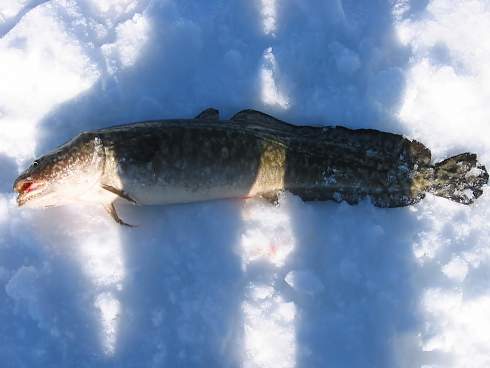
During the evening we checked the girders three more times. Each time the catch was about the same. We noticed that there were three girders that never worked during the entire fishing trip. This suggests that we installed them incorrectly or drilled in the wrong place. From the remaining nine workers we caught about thirty kilograms of fish. At twelve o'clock at night they set up the girders for the last time, for the night, and lay down on their side. In the morning, once again, for the last time, we went on patrol - the catch was not so big, but it was still there. We collected the machine guns, got into the car and drove home.
As a result, this burbot trip brought each of us about ten kilograms of fish, a lot of pleasure and impressions and, most importantly, experience. Our little experience of winter fishing for burbot.
Author Yuri Polovnikov
Nearest populated areas:
| Big Named Village | Elkino town | Ermakovsky village near the station |
| village near the station | Forest settlement | Small Named Village |
| Malomalsky village near the station | Nizhnyaya Tura city | Taiga village near the station |
| Talisman village at the station |
Burbot bites
A predator can attack the bait quite aggressively, in which case the fisherman feels a swift blow to the rod. This fish can also bite more accurately (this mainly happens when it picks up the spoon from the bottom), while the nod gradually tightens. In this case, the fisherman can only immediately make a hook. A common mistake fishermen make: setting the hook too early. Burbot can simply spin around next to the bait and this makes the nod “play” slightly, so you need to wait for more decisive actions on the part of the predator.
Spawning ban on fishing in the Sverdlovsk region, Sverdlovsk 2021
Spawning 2021 in the Sverdlovsk region , terms where it is prohibited to fish during the spring-summer spawning fishing ban. Designated places and dates for each reservoir.
Prohibited periods (periods) for the extraction (catch) of aquatic biological resources:
1. Production (catch) is prohibited:
a) all types of aquatic biological resources:
from April 25 to June 15 - in the reservoirs Chernoistochinsky, Verkhne-Makarovsky, Nizhne-Tagilsky, Lenevsky, Nevyansk, Verkhne-Vyysky, Nizhne-Vyysky, Verkhne-Saldinsky, Isinsky, Nizhne-Saldinsky, Petrokamensky, Beloyarsky, Volchikhinsky, Novo-Mariinsky , Ayatsky and Isetsky; lakes Melkoe, Tavatuy, Baltym; the Iset River from the source to the backwater of the Verkh-Isetsky reservoir and the Reshetka River; (Paragraph as amended, put into effect on April 1, 2021 by order of the Ministry of Agriculture of Russia dated February 18, 2021 N 62.) from May 15 to June 15 - in the Artinsky, Nizhne-Serginsky, Verkh-Neivinsky, Pogorelsky, Staroutkinsky, Afanasyevsky reservoirs, Artinsky, Nizhne-Turinsky, Verkhne-Turinsky, Rezhevsky, Revdinsky, Mikhailovsky, Bilimbaevsky, Kushvinsky, Polevsky and Atigsky, as well as in lakes Shitovskoye, Shartash, Chusovskoye and Dikoe; (Paragraph as amended, put into effect on April 1, 2021 by order of the Ministry of Agriculture of Russia dated February 18, 2021 N 62.) from May 1 to May 30 - in other water bodies of fishery importance in the region; from May 1 to June 15 - in the Lozva River from the source to the mouth of the Bolshaya Umpia River; b) whitefish:
from September 20 to November 20 - in Lake Tavatuy; c) from October 20 to November 15 - Siberian grayling everywhere.
2. Types of aquatic biological resources prohibited for production (catch):
Siberian sturgeon, nelma, taimen, common sculpin.
3. Types of prohibited tools and methods of extraction (catch) of aquatic biological resources:
It is prohibited to use fishing (fishing) gear that is not specified in clause 17.4 of the Fishing Rules and that does not comply with the technical documentation.
4. Mesh size of extraction (catch) gear, size and design of gear for extraction (catch) of aquatic biological resources:
It is prohibited to use mining (catch) gear with a mesh size (step) smaller than that indicated in the table:
Name of aquatic biological resources / Minimum mesh size (pitch), mm (Fixed and floating nets)
Bream 60 Asp, pike, pike perch 50 Crucian carp 32 Other fish species 26 5. Minimum size of extracted (caught) aquatic biological resources (commercial size):
5.1. It is prohibited to carry out production (catch), acceptance, processing, transhipment, transportation, storage and unloading of aquatic biological resources having a fresh length less than that indicated in the table (commercial size), except for the permitted bycatch of aquatic biological resources of less than commercial size.
Name of aquatic biological resources / Length, cm
Sterlet 40 Grayling 26 Pike-perch 35 Carp 30 Pike 30 Bream 23 Ide 23 5.2. The commercial size of fish is determined fresh by measuring the length from the top of the snout (with the mouth closed) to the base of the middle rays of the caudal fin.
|
Spring-summer spawning ban by regions of Russia 2021
| Amur Arkhangelsk Astrakhan Bashkortostan Belgorod Bryansk Degestan Vladimir Volgograd Vologda Voronezh Ivanovo Irkutsk Ingushetia Kaliningrad Kalmykia Kaluga Kemerovo Kirov Kostroma | Kurgan Kursk Leningrad Magadan Moscow Murmansk Nizhny Novgorod Novgorod Novosibirsk Omsk Orenburg Oryol Penza Pskov Rostov Ryazan Samara Saratov Sakhalin Sverdlovsk | Smolenskaya Lipetskaya Tambovskaya Tver Tomskaya Tula Tyumenskaya Ulyanovskaya Chelyabinskaya Yaroslavlskaya Altai Territory Transbaikal Territory Kamchatka Territory Krasnodar Territory Krasnoyarsk Territory Perm Territory Primorsky Territory Stavropol Territory Khabarovsk Territory |
{spoiler title=Description from Wikipedia opened=0} Description
The body is elongated, low, rounded in the anterior part and strongly laterally compressed in the posterior part. The head is flattened, its length exceeds the maximum height of the body. The eye is small. The mouth is large, semi-lower, the lower jaw is shorter than the upper. There are small bristle-like teeth on the jaws and head of the vomer, but there are none on the palate. There is one unpaired barbel on the chin (constituting 20-30% of the length of the head) and a pair of barbels on the upper jaw.
The color of the burbot's body depends on the nature of the soil, the transparency and illumination of the water, as well as on the age of the fish, so it is quite varied: often dark brown or blackish-gray, lighter with age. There are large light spots on the sides of the body and unpaired fins. The shape and size of the spots may vary. The belly and fins are light.
There are two dorsal fins: the first is short, the second is long. The anal one is also long. Together with the second dorsal, they come close to the caudal one, but do not connect with it. The pectoral fins are rounded. The abdominal ones are located on the throat, in front of the pectoral ones. The second ray of the pelvic fin is elongated into a long thread, equipped with sensitive cells, like on an antenna. The caudal fin is rounded. The scales are cycloid, very small, completely covering the entire body and part of the head from top to the nostrils and gill cover. The lateral line is complete until the beginning of the caudal peduncle; further towards the tail it may be interrupted.
The body length can reach up to 120 cm. In different bodies of water, linear growth occurs differently. Thus, the burbot of the Ob basin is characterized by the best indicators of growth and body weight; the Vilyuy burbot is close to it in terms of linear growth rates. The largest individuals - up to 18 kg - were recorded in the Lena River.
Life cycle
Burbot is more active in cold water. Spawning occurs in winter in December-February, the most successful fishing is at the first frost from dusk to dawn. It feeds on invertebrates and small fish. May eat decaying animals. Caught on girders, especially loves ruffs. There are both sedentary (living in lakes and small rivers) and semi-anadromous forms (for example, burbot of the Ob River).
Sedentary forms are usually small and slow-growing.
Semi-anadromous forms make long migrations (over a thousand kilometers per year). They have larger sizes (often more than a meter in length, weight more than 5-6 kg and age up to 15-24 years). Females do not spawn annually, skipping one or two seasons to restore the body’s energy reserves. Most males spawn annually.{/spoiler}
There are many places where you can catch burbot in our area. Of the most accessible - r. Sosva, r. Shegultan, b. Ivdel, it also enters smaller rivers that flow into the above, for example Kakva, Krasnoyarka, Bolshaya Volchanka, Vagran, Turya. You can also note such reservoirs as: Kalinsky Reservoir, Svetloe Lake. There is no need to list the reservoirs north of the city of Ivdel, since burbot is found in almost all reservoirs there.
The methods of catching burbot are not particularly original; moreover, burbot is completely indifferent to the thickness of the fishing line and the size of the hook (within reasonable limits, of course!).
I had to catch half-kilogram burbots with a 0.8mm fishing line and a hook like a good shark, and all this was wound on an ordinary stick found in the forest 

Bait for burbot can also be very diverse, but we still recommend using live bait, preferably a ruff, since other fish are less willing to take it and the ruff, according to many sources, is the favorite delicacy of burbot. Dead fish are also suitable, which the burbot takes no less willingly.
The burbot fishing season is limited only by weather conditions; with a strong increase in water temperature, it practically stops feeding.
Usually it begins to be caught in late autumn, especially when the river has not yet frozen, but snow has already fallen, at night. The peak of biting activity occurs on average in January, before spawning. After spawning, there is usually some calm, but not for long, and then active burbot biting continues until the ice melts.
